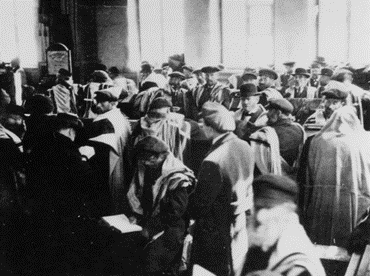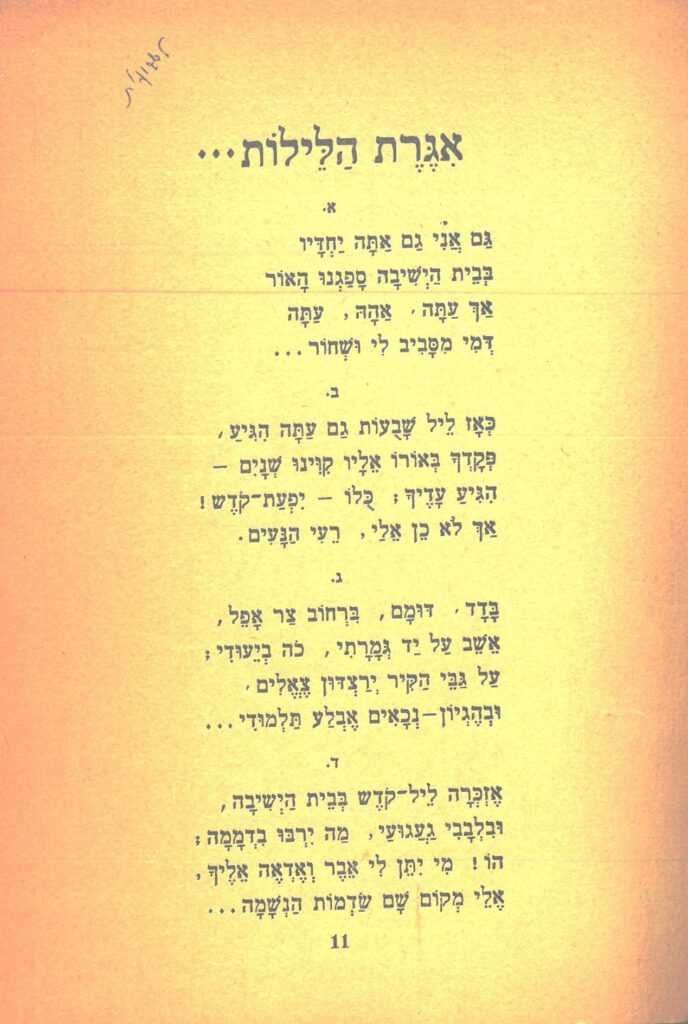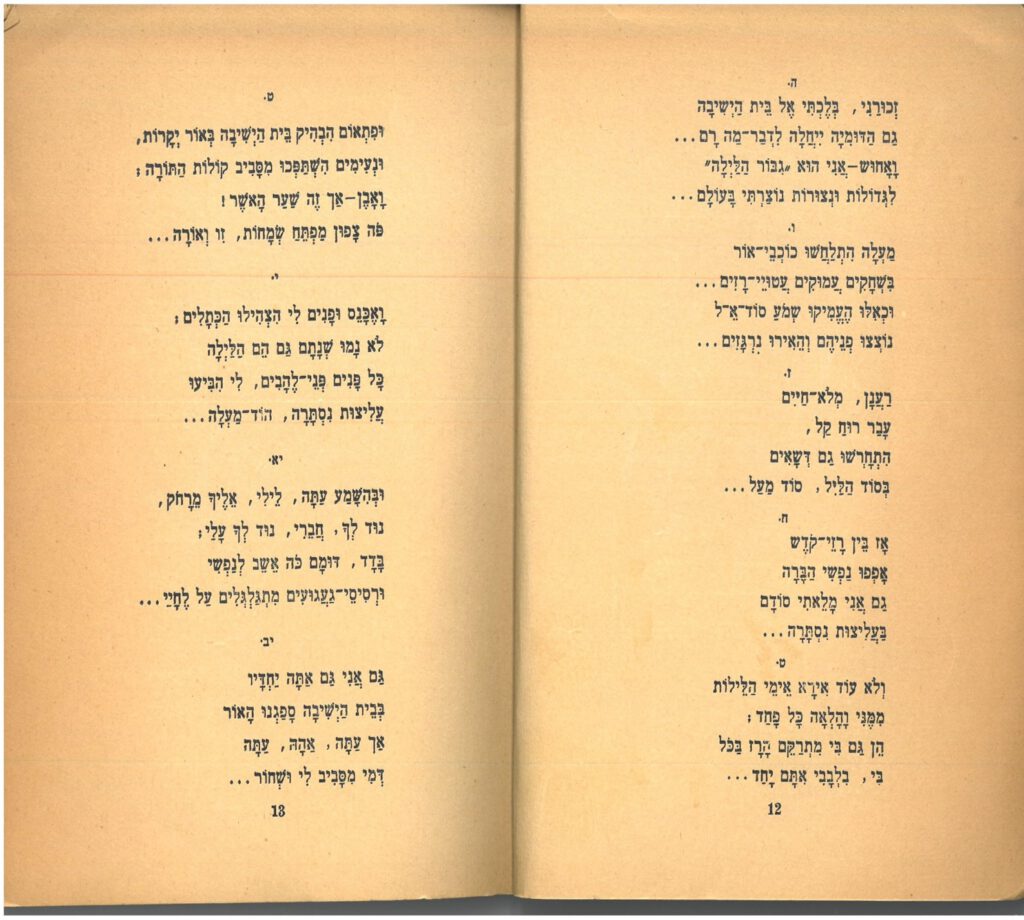Letter of the Nights
From “MiKolot HaDmama” (The Voices of Silence).
A poem for the holiday of Shavuot by Rabbi Tuvia Meirowitz, may G-d avenge his blood, rabbi and rabbinical court judge in the city of Alita (Alytus), Lithuania.
From the Ganzach Kiddush Hashem archive
By: Yaakov Rosenfeld
In 5798 (1937-8), two years before the outbreak of World War II, the book “MiKolot HaDmama” – a collection of poems by Rabbi Tuvia Meirowitz, who served as rabbi of the Alytus – was published by the printing press of S. Movshowitz in the city of Kaiden (Kėdainiai), Lithuania.
Alytus, a city in southern Lithuania, on the banks of the Nieman River and on the main road to Vilna, Kovno, and Belarus, was home to two thousand Jews, most of whom were shot to death among the trees of the forest bordering the city, where they were taken in 5701 (1941). Hundreds of the city’s Jews were killed in the first days of the occupation, as “revenge for the killing of German soldiers.”

Praying in the ancient synagogue in Alytus, Ganzach Kiddush Hashem archive
We do not have personal details about the genius Rabbi Tuvia Meirowitz, who was killed in the Holocaust (this is how it appears in the Yad Vashem Pages of Testimony, with the addition that he served as a rabbi), but from the collection of poems he published it is clear that he had strong emotions and a strong poetic soul. His poems are wonderful, his language is clean and artistic, his Hebrew language is bright and literary, and from every poem, his love of Torah and closeness to G-d is evident.
In his poetry, the genius Rabbi Tuvia Meirowitz talks frankly with his Creator; from his broken heart emerges a plea, the essence of which is a request for the truth and an understanding of “his duty in his world.” The dialogue that Rabbi Tuvia conducts with his Creator, with his desires, and with himself, is expressed in each of the poems, in the wonderful collection that every person with a soul will findsomething that their soul connects to within it.
Among his poems is a melancholy and moving poem about the holiday of Shavuot, in which the thoughts and feelings of a Jew who misses the holiday of Shavuot in the yeshiva are described, and he tries with all his might to connect with the memories, the mood, and the atmosphere.
In “Igeret HaLeilot” (Letter of the Nights), he described the longing of a ben Torah (someone who is devoted to living in the way of the Torah) for the yeshiva on the nights of Shavuot.
We include here a translation of the first stanza of the poem from Ganzach Kiddush Hashem’s archive:
Igeret HaLeilot
You and I together
In the yeshiva, we soaked up light
But now, oh, now
My blood is around me and it is black
Read it and connect with the veins of the heart of the world of the Lithuanian yeshivas, a generation that rose up in the years of rage like plumes of smoke from the sky, and on its ruins a new generation of Bnei Torah grew; a great generation that does not desecrate the memory of the martyrs, may G-d avenge their blood.
Shavuot in the Yeshivas of Lithuania: Thoughts and Longings, Rabbi Tuvia Meirowitz, may G-d avenge his blood.
















